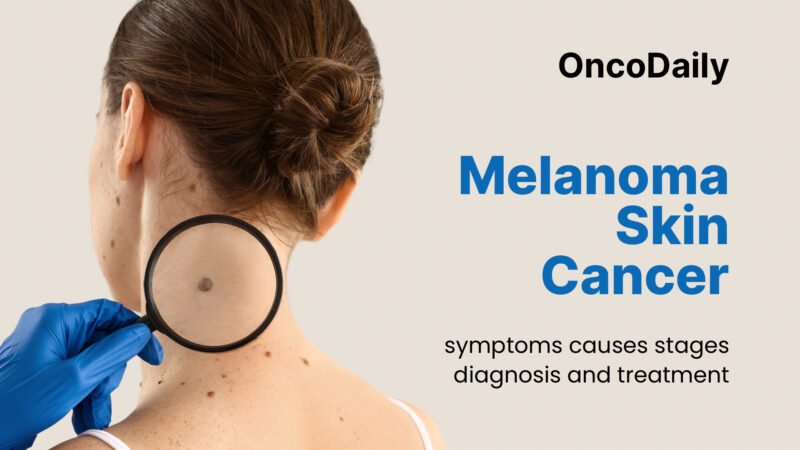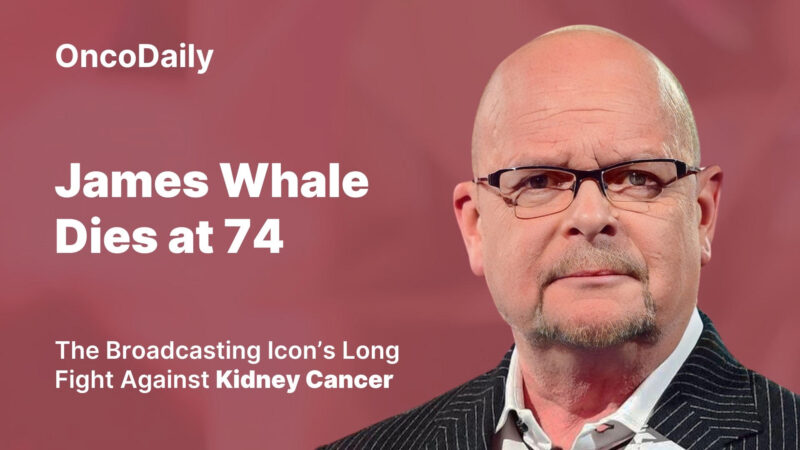Brandon Blackstock, a respected talent manager and former husband of singer Kelly Clarkson, passed away peacefully on August 7, 2025, at the age of 48 after a private, courageous battle with melanoma that lasted more than three years. Born on December 16, 1976, into a family deeply rooted in the music industry, he was the son of renowned music manager Narvel Blackstock and the stepson of country music legend Reba McEntire. Brandon forged his own path in the industry, managing notable country artists like Blake Shelton and Rascal Flatts, earning respect for his strategic approach and dedication to his clients.
What Do We Know About Brandon Blackstock’s Battle With Melanoma?
Brandon Blackstock battled melanoma, a serious and aggressive form of skin cancer, privately for more than three years before passing away peacefully on August 7, 2025. Melanoma arises from melanocytes, the cells responsible for skin color, and is considered the most dangerous type of skin cancer because it can rapidly metastasize (spread) to other organs if not caught early. Despite being highly treatable when detected promptly, melanoma poses high risks as it can quickly disseminate through the bloodstream and lymphatic system, making it potentially lethal.
Blackstock’s diagnosis remained largely private throughout this period. His family confirmed his extended, courageous fight with the disease and asked for privacy during this difficult time. Publicly, the first indications of his illness surfaced when his ex-wife, singer Kelly Clarkson, postponed her Las Vegas residency in mid-2025 to be fully present for their children during his illness. The family’s official statement described Blackstock’s battle as valiant and noted he passed surrounded by loved ones.
Melanoma treatment varies based on the disease stage but may include surgery, systemic therapies such as immunotherapy, targeted therapy, or chemotherapy, and coordinated care by specialists. Advanced melanoma often requires multidisciplinary management due to its aggressive nature. Blackstock’s private battle and limited public disclosure reflect the often personal and difficult challenge of confronting such a formidable cancer.
Brandon Blackstock’s Career Highlights
Brandon Blackstock’s career highlights center on his work as a respected talent manager and television producer primarily within the country music industry. He began his career at Starstruck Entertainment, a talent management firm founded by his father, Narvel Blackstock, where he gained experience managing prominent country artists. Notably, he managed stars such as Blake Shelton and the group Rascal Flatts. During his marriage to singer Kelly Clarkson, Blackstock also served as her manager and executive producer on The Kelly Clarkson Show. His management style earned him respect for his ability to recognize and nurture talent, guiding artists through critical phases in their careers.
Beyond managing artists, Brandon was known for his strategic industry insight and advocacy for his clients. His professional life was deeply connected to his family’s entertainment roots, being the stepson of country legend Reba McEntire, yet he built his own identity through his management accomplishments. Despite a private life marked by challenges including a highly publicized divorce and legal disputes related to management practices, his contributions to the careers of major country musicians remain significant.
Overall, Brandon Blackstock is remembered for his impactful behind-the-scenes role in shaping successful music careers, his trusted reputation in the industry, and his influence on several key music figures during his career.
According to the most recent data from authoritative cancer sources including the National Comprehensive Cancer Network (NCCN) and American Society of Clinical Oncology (ASCO), the 5-year relative survival rates for melanoma vary significantly by stage:
- Stage 0 (melanoma in situ): Nearly 99% to 100% 5-year survival.
- Stage IA: About 99%
- Stage IB: Approximately 97%
- Stage II (divided into IIA, IIB, IIC): Ranges from 94% (IIA) down to 82% (IIC)
- Stage III: Ranges from 93% (IIIA) down to 32% (IIID), depending on lymph node involvement.
- Stage IV (metastatic melanoma): 5-year survival drops substantially, around 34% to 52%.
More generally, melanoma diagnosed early (localized) has an excellent prognosis with a 5-year survival above 94%, while advanced stages with regional or distant spread show lower survival rates. The large improvement in survival over recent decades is related to earlier diagnosis and advances in treatments, including immunotherapies.
For example, data from NCCN guidelines and clinical literature show 5-year survival rates roughly aligned with these figures, and ASCO supports the use of these staging-based prognoses in clinical contexts. The overall 5-year relative survival for melanoma is about 94% in contemporary cohorts.
This staging-based survival information reflects the critical importance of early detection and treatment in melanoma care.
You Can Also Read Melanoma (Skin Cancer): Symptoms, Causes, Stages, Diagnosis and Treatment by Oncodaily

What Causes Melanoma ?
According to the American Society of Clinical Oncology (ASCO) and the National Comprehensive Cancer Network (NCCN) guidelines, melanoma is primarily caused by exposure to ultraviolet (UV) light, which is the most significant risk factor. Both UVB and UVA radiation from sunlight or tanning beds cause DNA damage to skin cells, potentially leading to melanoma. A family history of melanoma also increases risk by about two to three times, especially in cases of familial melanoma syndromes or atypical mole syndromes such as dysplastic nevus syndrome. Individuals with a personal history of melanoma or other skin cancers face a higher likelihood of developing melanoma again.
Skin type and pigmentation play a role as well; people with light skin, freckles, red or blond hair, blue or green eyes, and skin that easily burns or freckles are more susceptible. The number and type of moles also impact risk, with many moles or atypical, dysplastic moles linked to increased chances of melanoma. A weakened immune system, seen in immunocompromised individuals such as organ transplant recipients or HIV-positive patients, elevates melanoma risk.
Age and sex influence risk, with an increase in melanoma cases seen as people age, especially in men over 50, though younger individuals, particularly young women, can also be affected. The use of tanning beds contributes additional artificial UV exposure increasing melanoma risk. Socioeconomic factors may indirectly affect risk by influencing detection delay and preventive behaviors.
You Can Also Read Immunotherapy for Melanoma by Oncodaily

How to Prevent Melanoma ?
To prevent melanoma, according to guidelines from the American Society of Clinical Oncology (ASCO) and the National Comprehensive Cancer Network (NCCN), key measures focus largely on reducing ultraviolet (UV) light exposure, which is the primary cause of melanoma. This involves avoiding direct sunlight during peak UV hours, wearing protective clothing such as hats and long sleeves, and using broad-spectrum sunscreen with a high SPF regularly. It is advised to avoid artificial sources of UV radiation like indoor tanning beds, which significantly increase melanoma risk.
Public education about sun safety and regular skin self-examinations to detect suspicious changes early are also emphasized, although routine clinical screening for skin cancer has not yet been definitively shown to reduce melanoma mortality. Individuals, especially those with higher risk factors like fair skin, family history of melanoma, or many moles, should be particularly vigilant.
Oncology providers play a role in educating patients on these preventive strategies and advocating for policies limiting UV exposure from artificial sources. Together, these measures aim to minimize UV-induced DNA damage that leads to melanoma and encourage early detection through awareness and self-monitoring, which is critical for successful treatment outcomes.
You Can Also Read James Whale Dies at 74: The Radio Icon’s Long Fight Against Kidney Cancer by Oncodaily

Written by Aharon Tsaturyan MD
FAQ
Who was Brandon Blackstock?
Brandon Blackstock was a respected talent manager and television producer, known for managing country stars like Blake Shelton and Rascal Flatts. He was also the former husband of singer Kelly Clarkson and stepson of Reba McEntire.
When did Brandon Blackstock pass away and what was the cause?
He passed away peacefully on August 7, 2025, at the age of 48, after a private three-year battle with melanoma, an aggressive form of skin cancer.
How long did Brandon Blackstock battle melanoma?
Brandon Blackstock battled melanoma privately for more than three years before his passing.
What was Brandon Blackstock's relationship with Kelly Clarkson?
They married in 2013, had two children together, divorced in 2022, and maintained a focus on co-parenting their kids.
What were the public reactions or statements after his death?
His family and management described his battle as courageous and private. Kelly Clarkson postponed her Las Vegas residency in 2025 to focus on their children during his illness. Tributes highlighted his strength and the importance of respecting family privacy.
What is melanoma?
Melanoma is a serious and aggressive form of skin cancer that originates from melanocytes, the cells that give skin its color. It is the most dangerous type of skin cancer due to its high potential to spread to other organs quickly if untreated.
What causes melanoma?
The primary cause of melanoma is exposure to ultraviolet (UV) light from the sun or tanning beds, which damages the DNA in skin cells. Other risk factors include family history, fair skin, many or atypical moles, a weakened immune system, age, and artificial UV exposure.
What are the survival rates for melanoma?
Survival rates depend on the stage of melanoma: nearly 99-100% for early-stage (melanoma in situ), 82-94% for stage II, and 32-93% for stage III. Advanced metastatic melanoma (stage IV) survival rates range from about 34% to 52% at 5 years[ASCO/NCCN data summary from previous conversation].
How is melanoma treated?
Treatments vary by stage and may include surgery, immunotherapy, targeted therapy, chemotherapy, or combinations overseen by multidisciplinary specialists due to the disease's aggressiveness.
How can melanoma be prevented?
Prevention focuses on minimizing UV exposure by avoiding peak sunlight hours, wearing protective clothing, applying high-SPF broad-spectrum sunscreen, avoiding tanning beds, and performing regular skin self-examinations to detect suspicious changes early[ASCO/NCCN].


